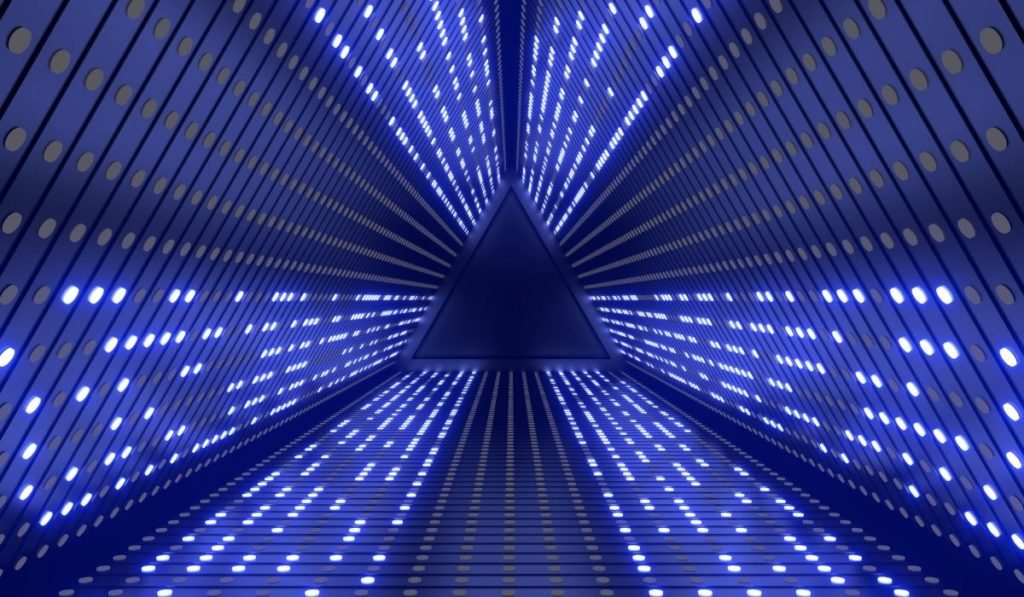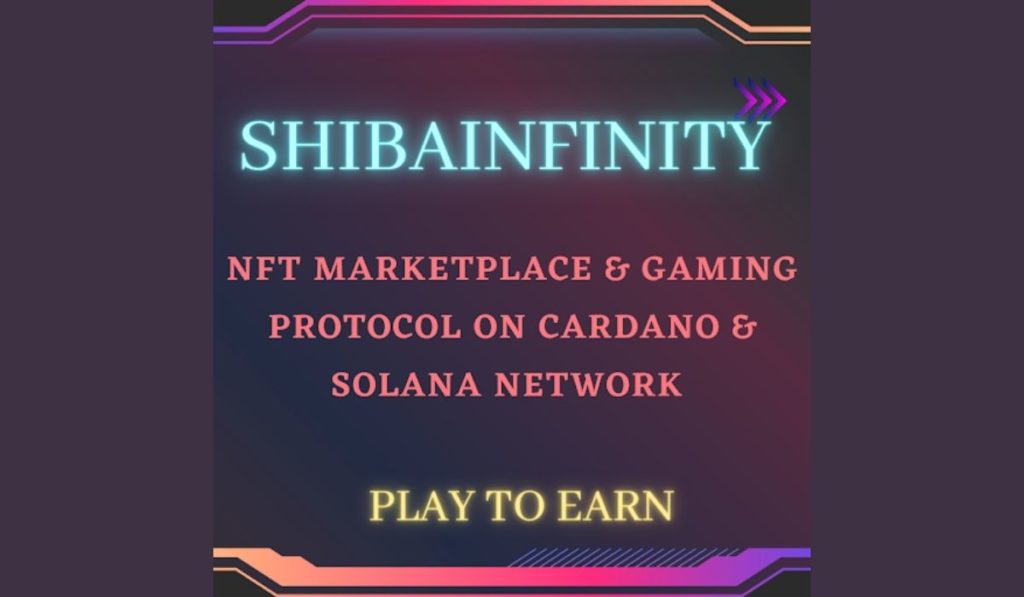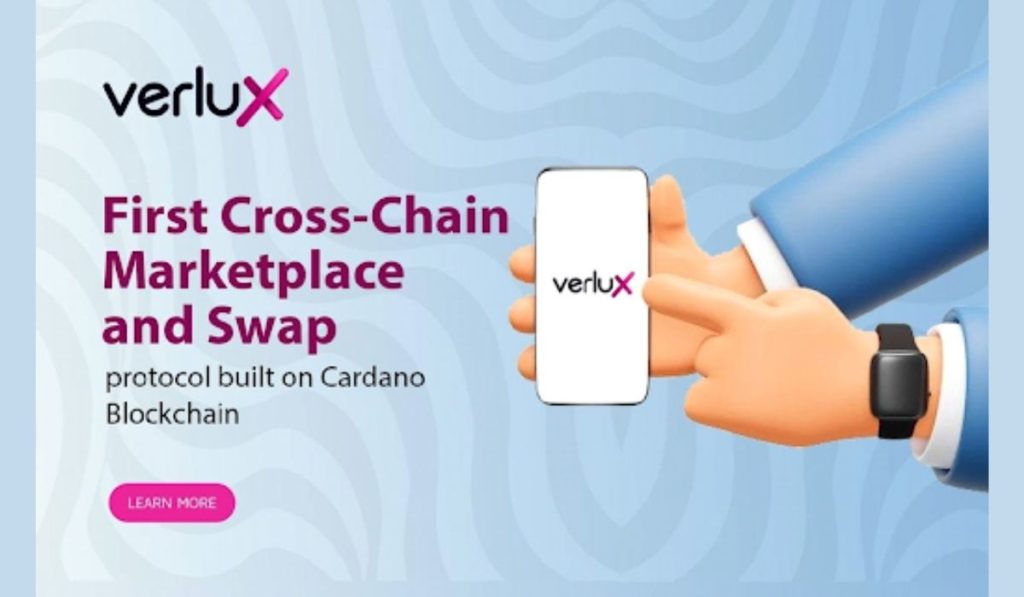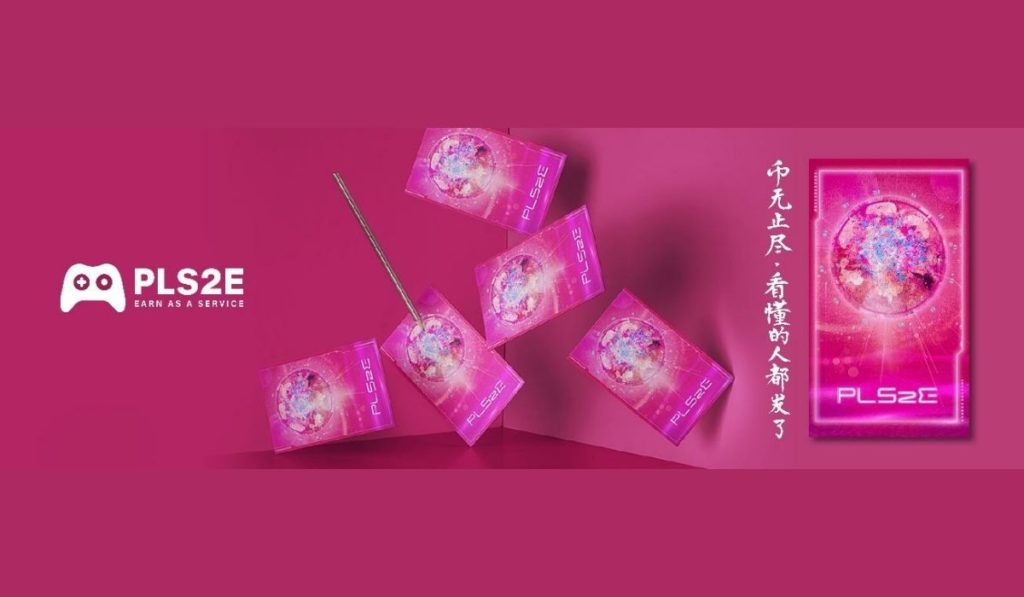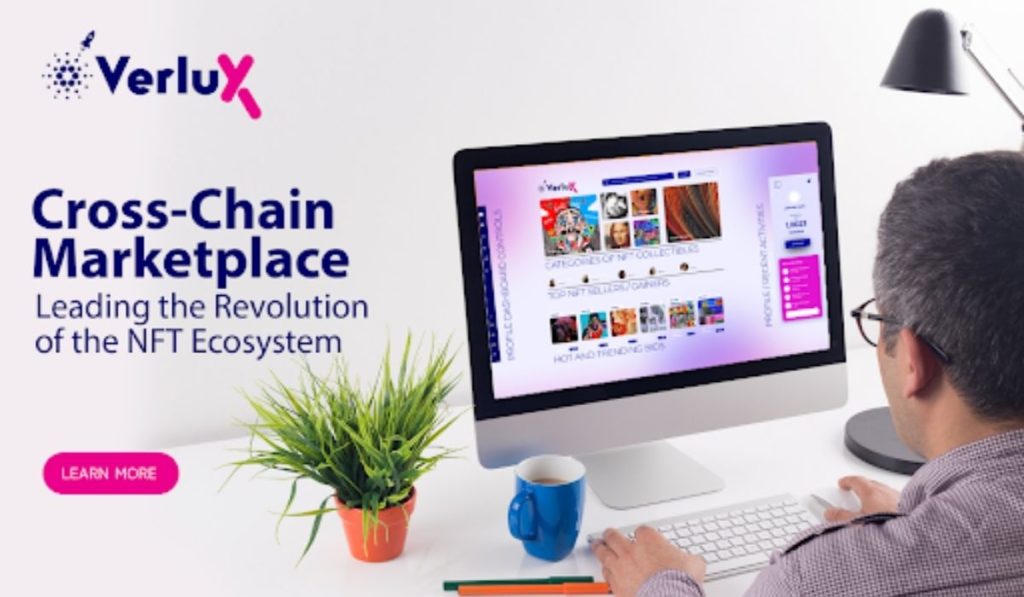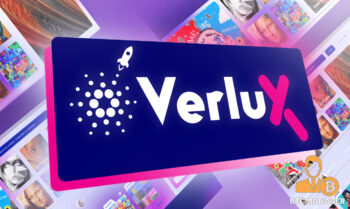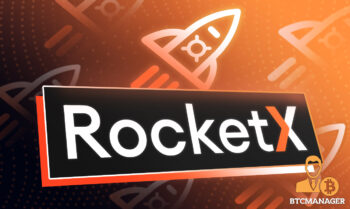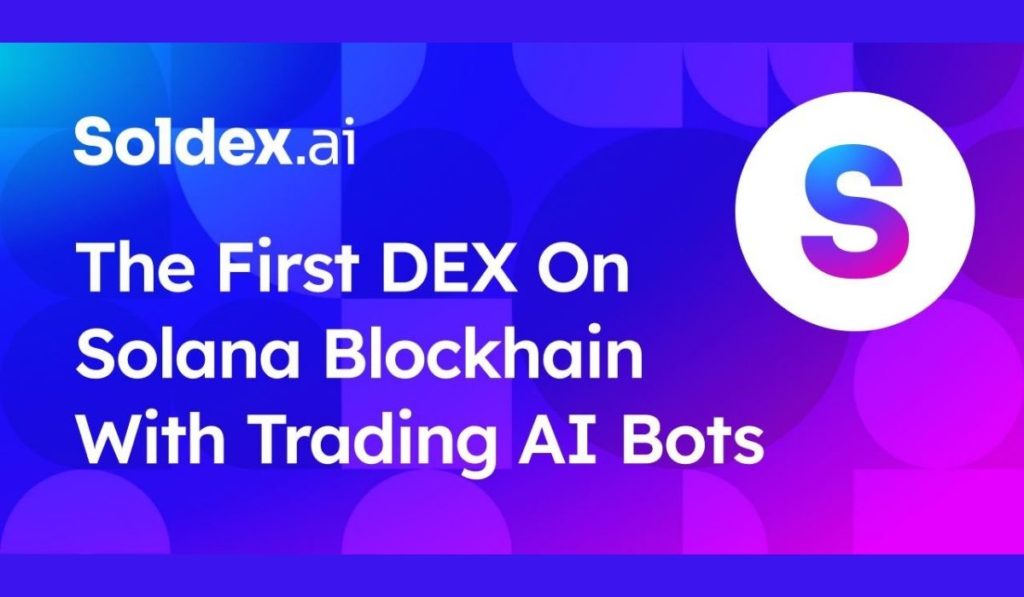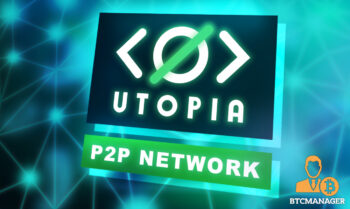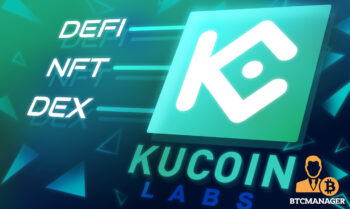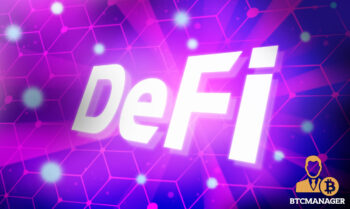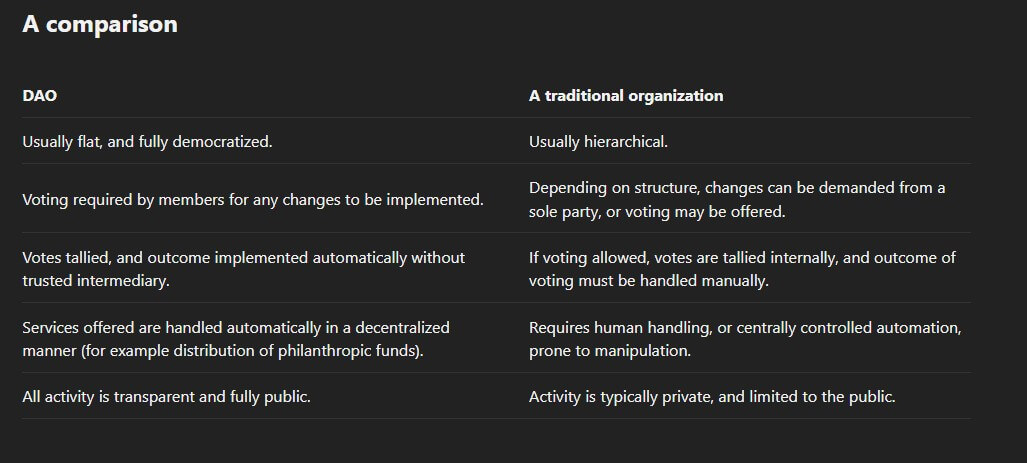
2022-4-12 11:30 |
Decentralized Autonomous Organizations (DAO) are becoming increasingly popular within the Web3 space but are they set to revolutionize politics as well as economics? DAOs are commonly used within the DeFi space to run a project in a truly decentralized manner. However, this may not be the most promising use case for DAOs and, ultimately, blockchain voting-based governance. Could the technology behind DAOs threaten the current political status quo? Is there a fairer form of democracy by utilizing DAO structures in government?
What is a DAO?If you are unfamiliar with how DAOs work, we have a fantastic breakdown written by Andjela Radmilac for our Edge members. The basics are that DAOs are organizations built on the blockchain. Their members collectively own them, and decisions are based on blockchain-based voting. Any funds held by the DAO are stored in a treasury with the private keys split between members to prevent unauthorized use or embezzlement. A DAO to function requires smart contract-enabled blockchains such as Ethereum, Cardano, Solana, or Fantom. They can also run on layer two networks such as Polygon. The Ethereum Foundation states that DAOs “open up so many new opportunities for global collaboration and coordination.”
DAOs in PoliticsSo, if DAOs were created to help because “it’s hard to trust someone you’ve only ever interacted with on the internet,” why would they be well suited to running an entire country? CoinBureau, a YouTube channel with over 2 million subscribers, recently told CryptoSlate,
“Blockchain and crypto serve a genuine existential threat to politicians and parties. You have DAOs and they could be a genuine threat to the political status quo and a genuine alternative.”
Guy, from the channel, explains his logic based on his experience of the fallibility and corruption of politicians worldwide. Speaking on whether we could see crypto-based political parties, he stated that politicians “themselves could be under threat from crypto not just as an issue.” This line of thinking opens up a debate as to whether DAOs genuinely have the capability to run a government in place of politicians. The below table is taken from ethereum.org and compares DAOs to traditional organizations.
Source: ethereum.orgIf you substitute “traditional organization” with a traditional government, you start to see how the proposition that DAOs could be the future of politics. Of course, in a democratic state, some of these points would need to be amended,
Usually hierarchical Depending on a government’s majority, changes can be enforced by a sole party. If voting is allowed, votes are lobbied by lobbyists and whips, and the outcome of voting must be handled manually. Requires human handling, or centrally controlled automation, prone to manipulation. Activity is often private and limited to the public.While the vote may be democratic in the majority, we also have to contend with gerrymandering, voter suppression, and other forms of voter manipulation, even in the best versions of our current democratic system. Norway, ranked number 1 by the Democracy Index, has seen a decline in score since 2012. In fact, most “Full democracies” received a lower score in 2021 than they did when Bitcoin was invented in 2009. By this standard, the United States has even moved from a “Full Democracy” to a “Flawed Democracy” by this standard. Alarmingly, only 6.4% of the world is said to have full democracy. 39% of countries have a flawed democracy, 17% have a hybrid regime, and a staggering 37.1% live under an authoritarian regime.
If a DAO can offer a better version of democracy to even the best versions of the political system, imagine what they could do for those currently living under dicatators and autocrats.
How would a DAO government work?Speaking to MEP Ondrej Kovarik of the Renew Party in Croatia recently, we asked how they thought DAOs could affect European politics in the near future. Kovarik responded,
“I believe DAOs are future trends to explore but at this point, I would not speculate of all the practical cases where they can be deemed useful.”
Kovarik is one of the supporting rapporteurs for the Markets in Crypto Assets legislation currently working through the EU parliament. He is an apparent pro-crypto politician who believes “the European Union leads the way for an innovation-friendly crypto-regulation.” However, the question of how DAOs could be integrated or even replace the current system is not a current focus.
DAOs offer a transparent, verifiable, and fair alternative to democracies. The entire voting system occurs on an immutable public ledger negating the opportunity for corruption; the total tally of votes does not require any human intervention and is viewable in real-time. Each voter has a single anonymous vote free from manipulation. Any member of the DAO can propose new legislation and have the organization vote on its implementation. A country run through a DAO would not need representatives in government to make decisions on their behalf as any citizen would be able to propose legislation changes.
For example, suppose the majority of the country believes that the current living wage is not sustainable due to increasing inflation. In that case, a worker could make a proposition and vote on by the rest of the country. If it received enough votes, the results would be known instantly and could be efficiently written into law. We would no longer be reliant on voting for whichever party was the closest to our beliefs and had the best chance of winning. We could vote for the policy, not party. The working class would genuinely have a say in their future, and lobbyists would be forced to focus on the needs of the people rather than the needs of their corporate sponsors.
Would a DAO government be viable?Of course, a DAO-based government would be the epitome of a ‘weak government’ similar to a hung parliament. Without a single ruling party, there is a possibility that passing legislation through a clear majority would be harder to achieve, but perhaps that is ok. Maybe we should have stronger convictions before allowing legislation into law. However, blockchain-based voting is more efficient than any current system by orders of magnitude. Daily votes on government policy could be had through blockchain-enabled smartphones. Polling stations would be a thing of the past, and every citizen could be engaged in politics as much or as little as they chose.
Further, suppose we were to incentivize voting through token rewards of a Central Bank Digital Currency (CBDC) controlled by the DAO. In that case, we could see higher voter participation levels than we do now. Rewarding citizens for voting, no matter their preference, with programmable money that could be automatically designated for retirement, charity, or any other spending is a world we could have.
The past two years have shown that the current political system is out of touch and too slow to react to fast-moving changes to the quality of living for everyday people. Politicians are people that many do not, and cannot, trust. We don’t need to trust a blockchain because it can be validated through code. So will we continue to fumble along with a flawed system, or will we push towards a new frontier of political freedom? Crypto may not just mean economic freedom; it may be our path to new political world order.
The post Are DAOs an existential threat to politicians worldwide? appeared first on CryptoSlate.
origin »Bitcoin price in Telegram @btc_price_every_hour
Decentralized Machine Learning (DML) на Currencies.ru
|
|

